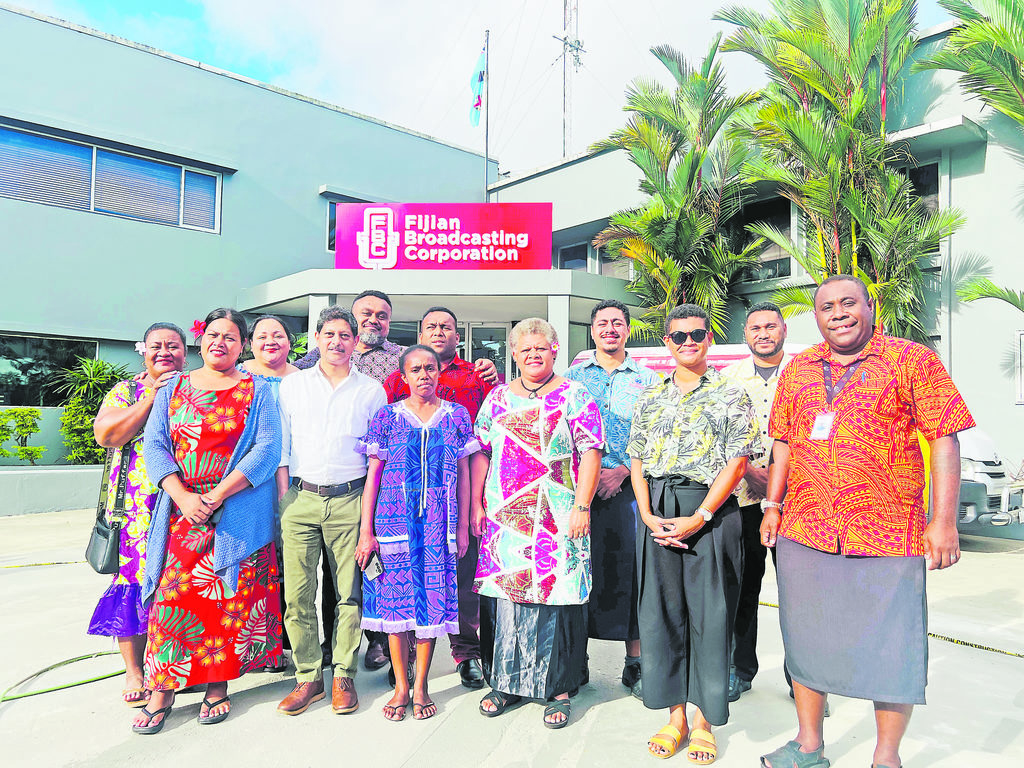POWERFUL storytelling through the form of radio drama combines imagination, sound and voice to educate, inform and entertain audiences.
To help broadcasters from across the Pacific rediscover the power of storytelling, 14 broadcasters were part of the BBC Media Action’s Art and Science of Radio Drama training in Suva.
The training was in partnership with the Fiji Broadcasting Corporation’s Pacific Multimedia Academy and was funded by the UK International Development under the British High Commission in Suva.
BBC’s Art and Science of Radio Drama trainer, Ujjwal Maitra said the workshop was designed to help participants rediscover the power of storytelling, particularly through short, emotional resonant radio dramas that can inform, inspire and influence positive behaviour change.
He said the Pacific region faces many shared challenges, from climate crisis, misinformation to health and gender issues, yet the region was also home to a rich oral storytelling tradition.
“This training builds on that culture strength, blending it with modern communications tools such as Behaviour Change Communication (BBC) and Human-Centred Design,” he said.
The need for last week’s training is quite urgent, especially at a time when misinformation, disinformation and deep fake abound.
“Audiences today consume content differently – they want stories that are short, authentic and emotionally engaging,” Mr Maitra said.
“This is as true for radio as it is for social media. The workshop helped participants create powerful 2-to-3-minute dramas that can run across platforms, each carrying a clear call to action while still feeling rooted in local humour, rhythm and voice.”
Grasping the key concepts of radio drama
The participants were exposed to key concepts of radio drama during the five-day training.
Mr Maitra said that the participants were able to grasp the key concepts of radio drama, especially given the diversity of the group.
“We had broadcasters from eight different island nations, each with distinct languages, styles, and radio formats. What united them was their instinct for community connection and their natural storytelling flair.
“By the end of the five days, every participant had written, performed, recorded and produced an original two-minute radio drama – complete with a central character, conflict, sound design cues, and a behaviour-change message.
“What stood out was how they grasped and adapted to story economy – understanding that less can often mean more.
“They learned how to build a compelling story with a tight structure: hook, conflict, punch and close. The concept of replacing exposition with sound and silence – letting the ear imagine – clicked with them.”
Three things resonated well with the group during the training. It was the focus on short-format drama, the participatory and performance-based approach and the connection between creativity and purpose.
Creative journey
The radio drama training was built as a creative journey not just a set of technical sessions.
“We began with the anatomy of drama, understanding hook, character and conflict and moved to writing for the ear, sound design and voice acting.
“By midweek, participants were writing complete short scripts, integrating humour and social messaging.
“I also introduced Behaviour Change Communication principles – how the same creative techniques that sell commercial products can be reimagined to promote positive social change.
“We explored how this storytelling tools translate beyond radio into social media videos, reels and digital campaigns – keeping audiences engaged in today’s multiplatform world.
“By the end of the week, each participant left not just with a certificate – but with a fully produced radio drama, a sharpened sense of narrative craft, and, I hope, a renewed love for the power of Pacific storytelling.”
As a trainer, Mr Maitra said he found it rewarding to witness the broadcaster shift from “announcing” to storytelling.
“Pacific participants, in particular, bring such authenticity, warmth, and humour to their stories.
“There are a natural rhythm and richness in Pacific voices that makes radio drama feel alive. Being part of that creative journey, from first draft to final performance was a privilege.
“What touched me most was their openness – their willingness to experiment, to laugh at their mistakes, and to collaborate across islands and cultures.
He said his work was not just about teaching a skill, but also about nurturing a belief, that a small story told with honesty can ripple across oceans.
“Seeing participants leave with that sense of pride and ownership – that’s the most fulfilling part.”
Radio production in the Pacific
Radio production in the Pacific remains vital because radio still boasts the widest reach across the Pacific’s diverse islands.
BBC Media Action’s Pacific project director, Dipak Bhattarai said radio often reaches remote communities compared to other media, especially during emergencies.
He said for this reason radio has become one of the most trusted sources in the Pacific.
On radio drama, Mr Bhattarai said it could create relatable scenarios that promote dialogue and understanding around key issues like health, disaster preparedness or governance.
“As radio audience have changed over time, the drama training was to shape short format radio dramas which can be translated on different social media platforms,” Bhattarai said.
Immersive experience
Solomon Islands Broadcasting Corporation’s assistant program and production officer, George Hoatamauri Junior who was part of the training said unlike their usual news, talk or education programs, radio drama was uniquely immersive.
“It creates a vivid experience not through visuals, but through voice, sound, and imagination,” he said.
“I found it incredibly engaging, a different kind of storytelling that draws the listener deep into the narrative using only audio. This, to me, is what makes radio drama so special, it’s theatre for the mind.
“During the training, I learned the fundamentals of script writing, voice acting, and audio production specific to drama.
“One of the most valuable skills I gained was voice acting. Learning how to bring a character to life depending on the director’s vision and the needs of the story. It was challenging but also exciting to explore how voice alone can communicate emotion, intention, and personality.”
BBC Media Action has for some time been providing capacity building trainings and workshops in the Pacific.
The Art and Science of Radio Drama training in Suva was from October 13 to October 17 at the FBC premises in Suva.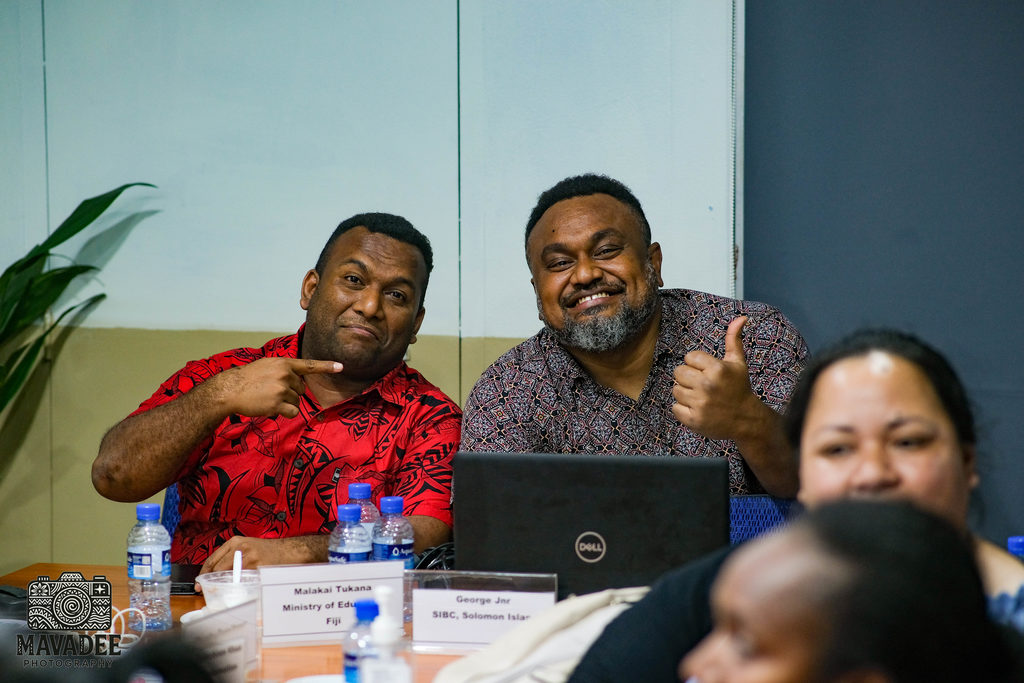
SIBC assistant program and production officer, George Hoatamauri Junior and FBC’s Gold FM team leader, Mathew Galuvakadua during the training. Picture: MAVADEE PHOTOGRAPHY
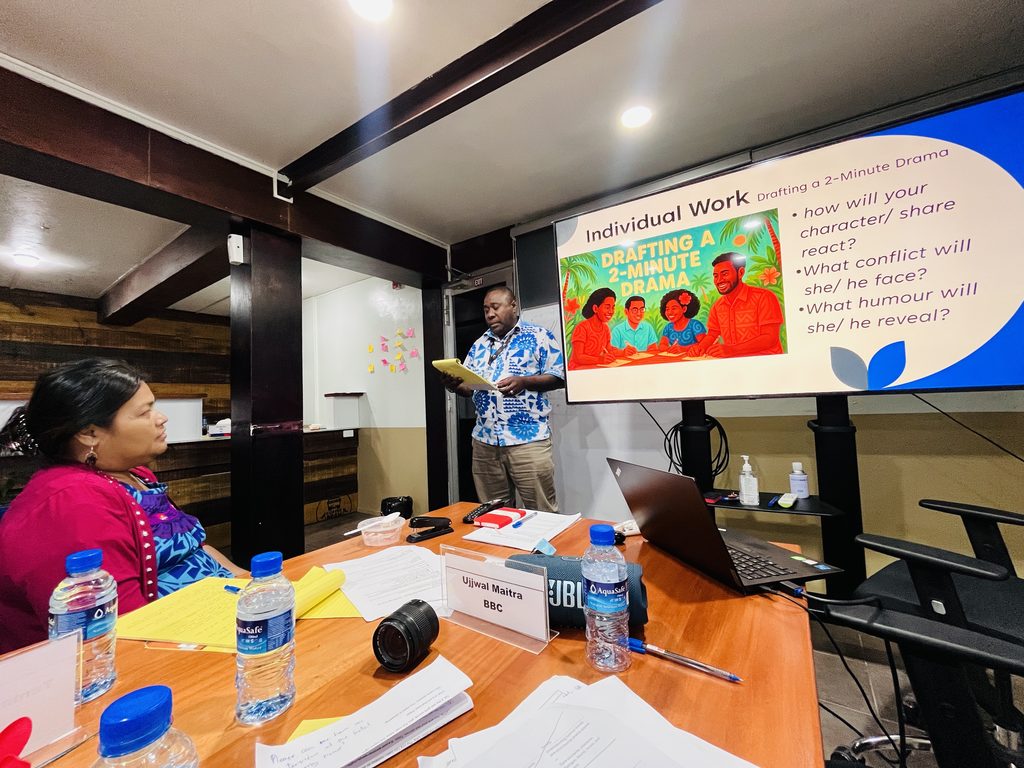
FBC’s Bula FM senior producer and presenter, Penaia Rainima presents his draft script to the team. Picture: ANA MADIGIBULI
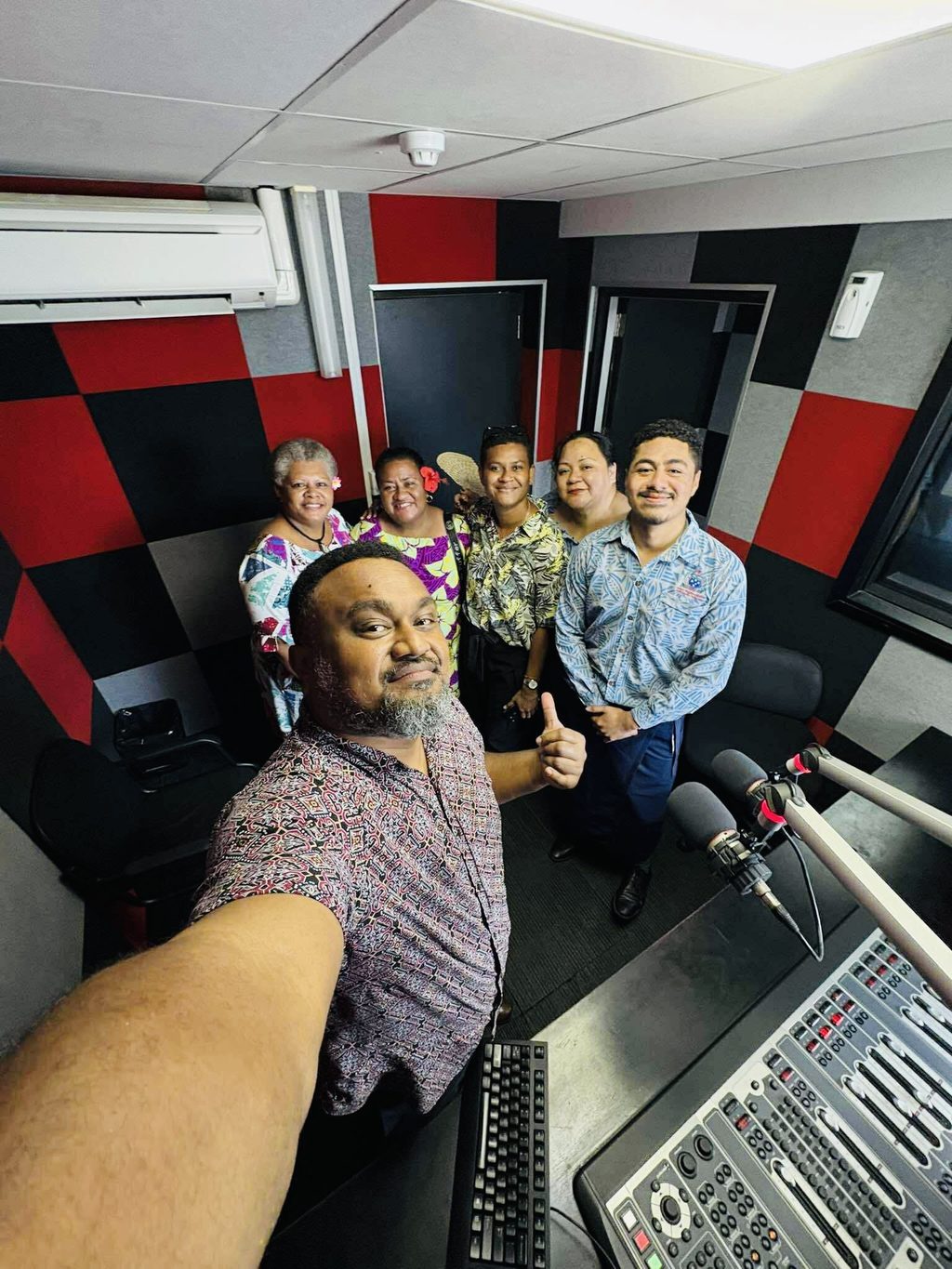
The group takes a break from recording their 2-minute radio dramas.
Picture: MATHEW GALUVAKADUA
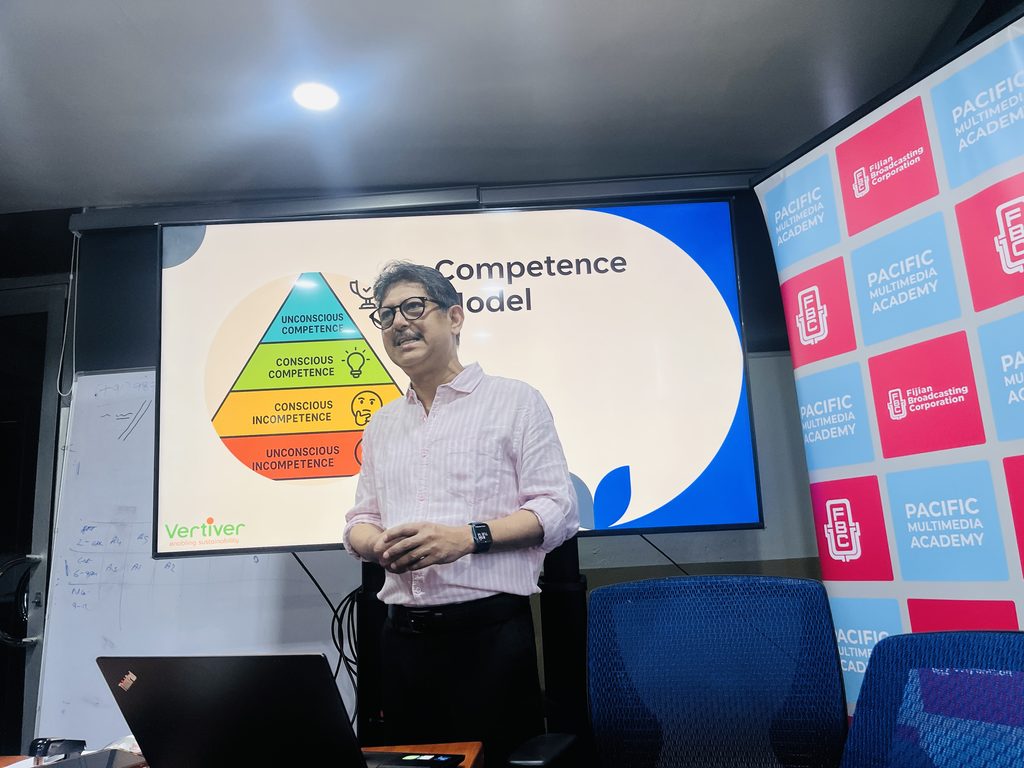
BBC’s Art and Science of Radio Drama trainer, Ujjwal Maitra. Picture: ANA MADIGIBULI

